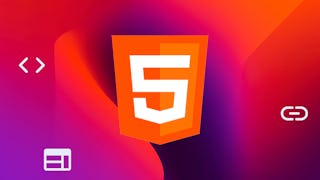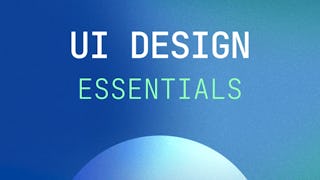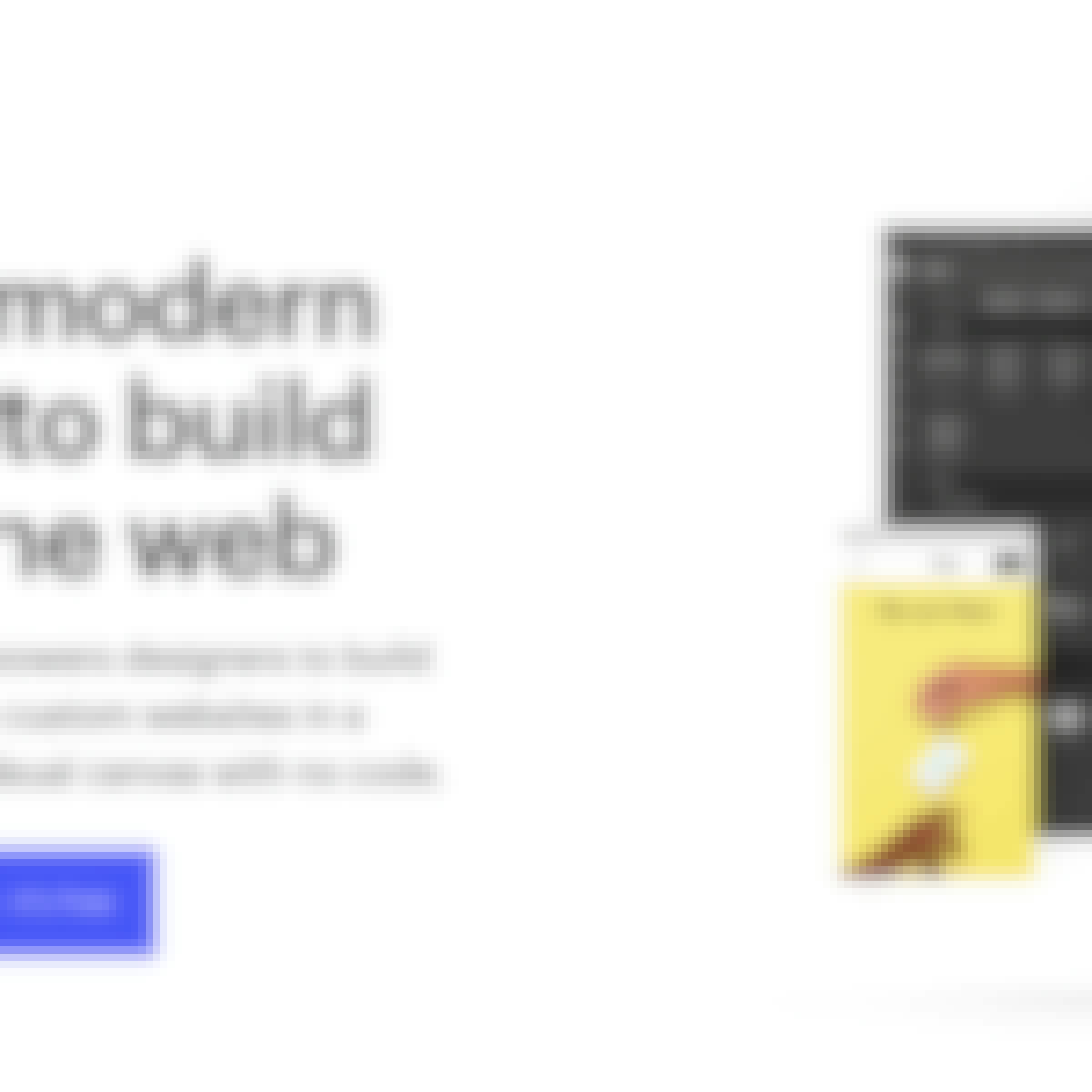- Browse
- Responsive Web Design
Responsive Web Design Courses
Responsive web design courses can help you learn layout techniques, fluid grids, flexible images, and media queries. You can build skills in creating user-friendly interfaces that adapt to various devices, optimizing performance, and ensuring accessibility. Many courses introduce tools like Adobe XD, Figma, and Bootstrap, that support designing and prototyping responsive websites, allowing you to implement your skills effectively in real projects.
Popular Responsive Web Design Courses and Certifications
 Status: Free TrialFree TrialS
Status: Free TrialFree TrialSScrimba
Skills you'll gain: Responsive Web Design, HTML and CSS, Cascading Style Sheets (CSS), Web Design and Development, Mobile Development, Front-End Web Development, Web Design, Web Development, Application Deployment, Cloud Deployment, User Interface (UI), User Interface (UI) Design, UI Components, Software Engineering
4.8·Rating, 4.8 out of 5 stars26 reviewsIntermediate · Specialization · 1 - 4 Weeks
 Status: Free TrialFree TrialU
Status: Free TrialFree TrialUUniversity of London
Skills you'll gain: Responsive Web Design, HTML and CSS, Web Design, Human Computer Interaction, Interaction Design, Web Design and Development, Bootstrap (Front-End Framework), Usability, User Interface and User Experience (UI/UX) Design, Wireframing, Cascading Style Sheets (CSS), Data Structures, Web Components, Javascript
4.6·Rating, 4.6 out of 5 stars1.9K reviewsMixed · Course · 1 - 3 Months
 Status: NewNewStatus: Free TrialFree Trial
Status: NewNewStatus: Free TrialFree TrialSkills you'll gain: Web Analytics and SEO, Web Design, Web Design and Development, Content Management Systems, E-Commerce, Blogs, Web Content, Information Architecture, User Experience Design, Content Management, Role-Based Access Control (RBAC), Payment Systems
Intermediate · Course · 1 - 3 Months
 Status: Free TrialFree TrialU
Status: Free TrialFree TrialUUniversity of Michigan
Skills you'll gain: Wireframing, Responsive Web Design, HTML and CSS, Web Content Accessibility Guidelines, Cascading Style Sheets (CSS), Web Design, Hypertext Markup Language (HTML), Browser Compatibility, Bootstrap (Front-End Framework), Web Design and Development, Javascript, Front-End Web Development, User Interface (UI), Verification And Validation, Web Development, Interactive Design, Usability, Event-Driven Programming, User Interface (UI) Design, Web Development Tools
4.7·Rating, 4.7 out of 5 stars35K reviewsBeginner · Specialization · 3 - 6 Months
 Status: Free TrialFree Trial
Status: Free TrialFree TrialSkills you'll gain: Responsive Web Design, Web Design, User Experience Design, Design Reviews, Wireframing, Usability Testing, User Centered Design, Design Research, User Interface (UI) Design, Prototyping, Mockups, Figma (Design Software), Information Architecture
4.8·Rating, 4.8 out of 5 stars3.8K reviewsBeginner · Course · 1 - 4 Weeks
 Status: Free TrialFree TrialS
Status: Free TrialFree TrialSScrimba
Skills you'll gain: Responsive Web Design, User Interface (UI) Design, User Interface (UI), HTML and CSS, Web Design, Figma (Design Software), Typography, Front-End Web Development, Web Design and Development, Maintainability, Mockups, Web Content Accessibility Guidelines, UI Components, Cascading Style Sheets (CSS), Layout Design, Web Development, Usability, Prototyping, Web Development Tools, Software Engineering
4.5·Rating, 4.5 out of 5 stars21 reviewsIntermediate · Specialization · 3 - 6 Months
What brings you to Coursera today?

Skills you'll gain: Responsive Web Design, No-Code Development, Web Design, Content Management, Web Design and Development, Web Content, Web Development
4.4·Rating, 4.4 out of 5 stars130 reviewsBeginner · Guided Project · Less Than 2 Hours
 Status: Free TrialFree TrialC
Status: Free TrialFree TrialCCalifornia Institute of the Arts
Skills you'll gain: Information Architecture, Persona (User Experience), UI/UX Strategy, Web Design, User Experience, Wireframing, User Research, User Centered Design, Mockups, Usability Testing, Requirements Analysis, Target Audience, Agile Methodology
4.8·Rating, 4.8 out of 5 stars1.3K reviewsIntermediate · Course · 1 - 3 Months
 Status: Free TrialFree TrialU
Status: Free TrialFree TrialUUniversity of London
Skills you'll gain: Responsive Web Design, HTML and CSS, Web Design, Human Computer Interaction, Interaction Design, jQuery, Web Design and Development, Bootstrap (Front-End Framework), Hypertext Markup Language (HTML), User Experience Design, User Accounts, MongoDB, Wireframing, Web Applications, Full-Stack Web Development, Interactive Data Visualization, Application Design, JavaScript Frameworks, Web Development Tools, Javascript
4.5·Rating, 4.5 out of 5 stars7.6K reviewsBeginner · Specialization · 3 - 6 Months
 Status: NewNewStatus: Free TrialFree Trial
Status: NewNewStatus: Free TrialFree TrialSkills you'll gain: Responsive Web Design, Front-End Web Development, HTML and CSS, Bootstrap (Front-End Framework), Web Design, User Interface (UI), Cascading Style Sheets (CSS), Hypertext Markup Language (HTML), User Interface and User Experience (UI/UX) Design, Event-Driven Programming, Web Applications, UI Components, Web Development, Interactive Design, User Interface (UI) Design, Javascript, jQuery, User Experience Design, Web Design and Development, Animations
Intermediate · Specialization · 3 - 6 Months
 Status: NewNewStatus: Free TrialFree Trial
Status: NewNewStatus: Free TrialFree TrialSkills you'll gain: Responsive Web Design, Web Design, HTML and CSS, Cascading Style Sheets (CSS), Hypertext Markup Language (HTML), Bootstrap (Front-End Framework), UI Components, Javascript and jQuery, Front-End Web Development, Usability, Web Development, Browser Compatibility, User Interface (UI), Interactive Design, Javascript, Creative Design, Web Design and Development, Typography, Web Analytics and SEO, Wireframing
Beginner · Specialization · 3 - 6 Months
 Status: NewNew
Status: NewNewSkills you'll gain: Responsive Web Design, Front-End Web Development, Web Design and Development, HTML and CSS, User Interface and User Experience (UI/UX) Design, Web Applications, UI Components, Browser Compatibility, Javascript, Interactive Design, Mobile Development, Typography, Animations
Beginner · Course · 1 - 3 Months
Searches related to responsive web design
In summary, here are 10 of our most popular responsive web design courses
- Responsive Web Design: Scrimba
- Responsive Web Design: University of London
- Advanced Website Design with Simvoly, Tilda, Jimdo & Zoho: LearnKartS
- Web Design for Everybody: Basics of Web Development & Coding: University of Michigan
- Build Dynamic User Interfaces (UI) for Websites: Google
- UI Design for Web Developers: Scrimba
- Create a no-code responsive website with Webflow: Coursera
- Web Design: Strategy and Information Architecture: California Institute of the Arts
- Responsive Website Development and Design: University of London
- Hands-On Projects with HTML, CSS, and JavaScript: Packt
Frequently Asked Questions about Responsive Web Design
Responsive web design is an approach to web development that ensures websites function well on a variety of devices and screen sizes. This design philosophy is crucial because it enhances user experience, making websites accessible and visually appealing across smartphones, tablets, and desktops. As more users access the internet through mobile devices, responsive web design has become essential for businesses and organizations aiming to reach a broader audience.
A background in responsive web design can open doors to various job opportunities. Positions such as web designer, front-end developer, UI/UX designer, and digital marketing specialist often require skills in responsive design. Additionally, roles in project management and product development may benefit from an understanding of how responsive design impacts user engagement and satisfaction.
To excel in responsive web design, you should develop a range of skills. Key competencies include proficiency in HTML, CSS, and JavaScript, as well as an understanding of design principles and user experience (UX) concepts. Familiarity with frameworks like Bootstrap or Foundation can also be beneficial. Additionally, knowledge of tools for testing and optimizing designs for different devices is essential.
There are several excellent online courses available for learning responsive web design. Notable options include the Responsive Web Design Specialization and Learn Responsive Web Design. These courses provide comprehensive training, covering essential skills and techniques needed to create responsive websites.
Yes. You can start learning responsive web design on Coursera for free in two ways:
- Preview the first module of many responsive web design courses at no cost. This includes video lessons, readings, graded assignments, and Coursera Coach (where available).
- Start a 7-day free trial for Specializations or Coursera Plus. This gives you full access to all course content across eligible programs within the timeframe of your trial.
If you want to keep learning, earn a certificate in responsive web design, or unlock full course access after the preview or trial, you can upgrade or apply for financial aid.
To learn responsive web design, start by enrolling in online courses that cover the fundamentals. Practice by creating your own projects, experimenting with different layouts, and testing them on various devices. Engaging with online communities and forums can also provide valuable insights and support as you progress in your learning journey.
Typical topics covered in responsive web design courses include fluid grids, flexible images, media queries, and mobile-first design principles. Courses often explore CSS frameworks, accessibility considerations, and best practices for optimizing user experience across devices. These topics equip learners with the knowledge to create functional and aesthetically pleasing websites.
For training and upskilling employees in responsive web design, courses like the Comprehensive UX and Responsive Web Design and Responsive Website Development and Design Capstone are highly recommended. These programs provide practical skills and knowledge that can be directly applied in a professional setting.










